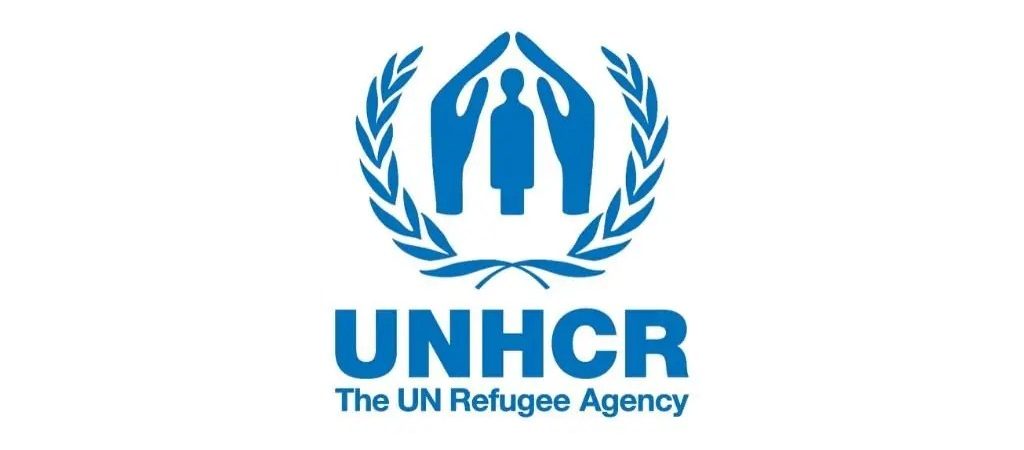
Hardship Level: D
Family Type: Non Family with Residential Location
Family Type: Non Family with Residential LocationDanger Pay
Residential location (if applicable): Addis Ababa,Eth Fed Dem Rep
Grade: NOA
Staff Member / Affiliate Type: National Professional Officer
Reason: Regular > Regular Assignment
Remote work accepted: No
Target Start Date: 2023-06-01-07:00
Job Posting End Date: March 26, 2023
Standard Job Description: Assistant Protection Officer
Organizational Setting and Work Relationships
The Assistant Protection Officer reports to the Protection Officer or the Senior Protection Officer. Depending on the size and structure of the Office, the incumbent may have supervisory responsibility for protection staff including community-based protection, registration, resettlement and education. S/he provides functional protection guidance to information management and programme staff on all protection/legal matters and accountabilities. These include: statelessness (in line with the campaign to End Statelessness by 2024), Global Compact on Refugees (GCR) commitments, age, gender, diversity (AGD) and accountability to affected populations (AAP) through community-based protection, Child protection, Gender-Based Violence (GBV) prevention and response, gender equality, disability inclusion, youth empowerment, psycho-social support and PSEA, registration, asylum/refugee status determination, resettlement, local integration, voluntary repatriation, human rights standards integration, national legislation, judicial engagement, predictable and decisive engagement in situations of internal displacement and engagement in wider mixed movement and climate change/disaster-related displacement responses. S/he supervises protection standards, operational procedures and practices in protection delivery in line with international standards.
The Assistant Protection Officer is expected to coordinate quality, timely and effective protection responses to the needs of populations of concern (PoC), ensuring that operational responses in all sectors mainstream protection methodologies and integrate protection safeguards. The incumbent contributes to the design of a comprehensive protection strategy and represents the Organization externally on protection doctrine and policy as guided by the supervisor. S/he also ensures that PoC are meaningfully engaged in the decisions that affect them and support programme design and adaptations that are influenced by the concerns, priorities and capacities of them. To achieve this, the incumbent will need to build and maintain effective interfaces with communities of concern, authorities, protection and assistance partners as well as a broader network of stakeholders who can contribute to enhancing protection.
All UNHCR staff members are accountable to perform their duties as reflected in their job description. They do so within their delegated authorities, in line with the regulatory framework of UNHCR which includes the UN Charter, UN Staff Regulations and Rules, UNHCR Policies and Administrative Instructions as well as relevant accountability frameworks. In addition, staff members are required to discharge their responsibilities in a manner consistent with the core, functional, cross-functional and managerial competencies and UNHCR’s core values of professionalism, integrity and respect for diversity.
Duties
- Stay abreast of political, social, economic and cultural developments that have an impact on the protection environment.
- Consistently apply International and National Law and applicable UN/UNHCR and IASC policy, standards and codes of conduct.
- Assist in providing comments on existing and draft legislation related to PoC.
- Provide legal advice and guidance on protection issues to PoC; liaise with competent authorities to ensure the issuance of personal and other relevant documentation.
- Conduct eligibility and status determination for PoC in compliance with UNHCR procedural standards and international protection principles.
- Promote and contribute to measures to identify, prevent and reduce statelessness.
- Contribute to a country-level child protection plan as part of the protection strategy.
- Contribute to a country-level education plan as part of the protection strategy.
- Provide inputs for the development of protection policies and standards within the AoR.
- Implement and monitor Standard Operating Procedures (SOPs) for all protection/solutions activities.
- Manage individual protection cases including those on GBV and child protection. Monitor, and intervene in cases of refoulement, expulsion and other protection incidents.
- Recommend durable solutions for the largest possible number of PoC through voluntary repatriation, local integration and where appropriate, resettlement.
- Assess resettlement needs and apply priorities for the resettlement of individuals and groups of refugees and other PoC.
- Contribute to the design, implementation and evaluation of protection related AGD based programming with implementing and operational partners.
- Contribute to and facilitate a programme of results-based advocacy with sectorial and/or cluster partners.
- Contribute to and facilitate effective information management through the provision of disaggregated data on populations of concern and their problems.
- Assist capacity-building initiatives for communities and individuals to assert their rights.
- Participate in initiatives to capacitate authorities, relevant institutions and NGOs to strengthen national protection related legislation and procedures.
- Intervene with authorities on protection issues.
- Assist the supervisor in deciding priorities for reception, interviewing and counselling for groups or individuals.
- Assist the supervisor in enforcing compliance of staff and implementing partners with global protection policies and standards of professional integrity in the delivery of protection services.
- Enforce compliance with, and integrity of, all protection standard operating procedures.
- Perform other related duties as required.
Minimum Qualifications
Years of Experience / Degree Level
For P1/NOA – 1 year relevant experience with Undergraduate degree; or no experience with Graduate degree; or no experience with Doctorate degree
Field(s) of Education
Law, International Law, Political Sciences
or other relevant field.
(Field(s) of Education marked with an asterisk* are essential)
Certificates and/or Licenses
Not specified;
(Certificates and Licenses marked with an asterisk* are essential)
Relevant Job Experience
Essential
Knowledge of International Refugee and Human Rights Law and ability to apply the relevant legal principles
Desirable
Completion of the Protection Learning Programme, RSD- Resettlement Learning Programme.
Functional Skills
*PR-Protection-related guidelines, standards and indicators
*PR-Age, Gender and Diversity (AGD)
MG-Project Management
PR-Human Rights Doctrine/Standards
PR-International Humanitarian Law
PR-Assessment of IDPs Status, Rights, Obligation
PR-Climate change and disaster related displacement
CO-Drafting and Documentation
PR-Gender Based Violence (GBV) Coordination
(Functional Skills marked with an asterisk* are essential)
Language Requirements
For International Professional and Field Service jobs: Knowledge of English and UN working language of the duty station if not English.
For National Professional jobs: Knowledge of English and UN working language of the duty station if not English and local language.
For General Service jobs: Knowledge of English and/or UN working language of the duty station if not English.
All UNHCR workforce members must individually and collectively, contribute towards a working environment where each person feels safe, and empowered to perform their duties. This includes by demonstrating no tolerance for sexual exploitation and abuse, harassment including sexual harassment, sexism, gender inequality, discrimination and abuse of power.
As individuals and as managers, all must be proactive in preventing and responding to inappropriate conduct, support ongoing dialogue on these matters and speaking up and seeking guidance and support from relevant UNHCR resources when these issues arise.
This is a Standard Job Description for all UNHCR jobs with this job title and grade level. The Operational Context may contain additional essential and/or desirable qualifications relating to the specific operation and/or position. Any such requirements are incorporated by reference in this Job Description and will be considered for the screening, shortlisting and selection of candidates.
Desired Candidate Profile: The incumbent will be required to have the field protection background and it is desirable to have prior experience working in the region. Management skills are also desirable.
Required languages (expected Overall ability is at least B2 level):: ,
Desired languages: ,
Operational context: Occupational Safety and Health Considerations:: Nature of Position:: The Ethiopia Operation has developed a three-year Multi-Year Strategy (2022 \u2013 2024), and a partner selection process was completed to align partnerships towards the achievement of the goals of the Multi-Year Strategy. The budgets for Bambasi are included under SO-Assosa. The Assistant Protection Officer will lead the multi-function team in Bambasi in close consultation with the Head of Sub-Office and Protection/Programme Officer based in Assosa. S/he facilitates detailed planning, implementation, and reporting. S/he will coordinate with government agencies, operational partners, and other stakeholders to ensure the successful implementation of the multi-year strategy. The incumbent will lead Bambasi Field Unit team of about 6 national staff at the G levels. Staff live in Assosa town and commute to Bambasi.
Living and Working Conditions:: Assosa town is in Benishagul-Gumuz Regional State of Ethiopia; while Bambasi Field Unit is located approximately 45KM from Assosa. Incumbent will stay in Assosa and commutes to Bambasi Field Unit daily.
Assosa town is a D category, security level 2 (low), non-family duty station. Bambasi refugee camp is a few metres from the office and is adjacent to Bambasi township. There is fairly good infrastructure as well as some leisure and recreational facilities in Assosa, although they are limited. Very limited health facilities available in regional capital, Assosa. Local banking facilities available only in Assosa;
Security Situation: Bambasi Field Unit is a security level 2 (low) duty station. Common crimes include petty thefts and pick-pocketing. However, UN premises and staff members have never been targeted. Currentlty there is official curfew in place, starting from 2000hrs and ending at 0600hrs on the following morning. Staff members are advised to be inside compounds during dark hours of the day.
Sensitive political context and past experience shows frequent blockage of road access, especially to and from Tongo and sourounding areas that include Bambasi. Staff are therefore advised to ensure that they carry supplies of their critical medicines that they may need to use frequently as the main market supplies route from Addis Ababa is sometimes inaccessible.
The prevailing economic situation and insufficient funding has resulted in refugees food rations reductions and this sometimes trigger tensions and violence in refugee camps.
The refugees and other persons of concern are of very diverse in all aspects of diversity. The incumbent is expected to be familiar and capable of managing and working within such contexts.
Markets: There are functioning commodities markets for basic commodities, including food. Variety is limited but commodities are readily available. Due to frequent road blockages and general upward inflation trend prices are generally high in Assosa.
Weather: In Asosa, the wet season is warm and overcast and the dry season is hot and partly cloudy. Over the course of the year, the temperature typically varies from 13\u00b0C to 33\u00b0C. The hot season lasts for 2.8 months, from January 31 to April 25, with an average daily high temperature above 31\u00b0C. The cool season lasts for 3.6 months, from June 21 to October 8, with an average daily high temperature below 24\u00b0C. The coldest month of the year in \u0100sosa is August, with an average low of 15\u00b0C.
Additional Qualifications: Skills
CO-Drafting and Documentation, MG-Project Management, PR-Age, Gender and Diversity (AGD), PR-Assessment of IDPs Status, Rights, Obligation, PR-Climate change and disaster related displacement, PR-Gender Based Violence (GBV) Coordination, PR-Human Rights Doctrine/Standards, PR-International Humanitarian Law, PR-Protection-related guidelines, standards and indicatorsEducation
BA: International Law (Required), BA: Law (Required), BA: Political Science (Required)Certifications
Work Experience
Competencies: Accountability, Client & results orientation, Commitment to continuous learning, Communication, Judgement & decision making, Negotiation & conflict resolution, Organizational awareness, Political awareness, Stakeholder management, Teamwork & collaboration
UNHCR Salary Calculator: https://icsc.un.org/Home/SalaryScales
Compendium: Additional Information: An eliminatory or complementary written test for shortlisted candidates may be conducted which will be followed by competency-based interview. Female candidates are encouraged to apply.
Functional clearance: This position doesn’t require a functional clearance
